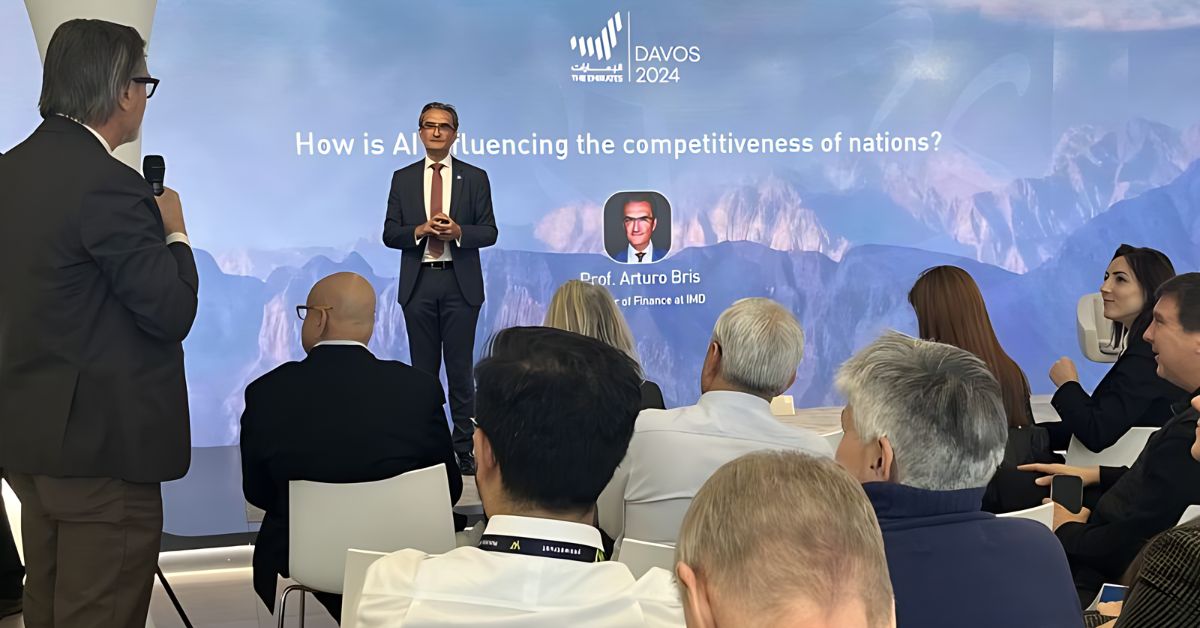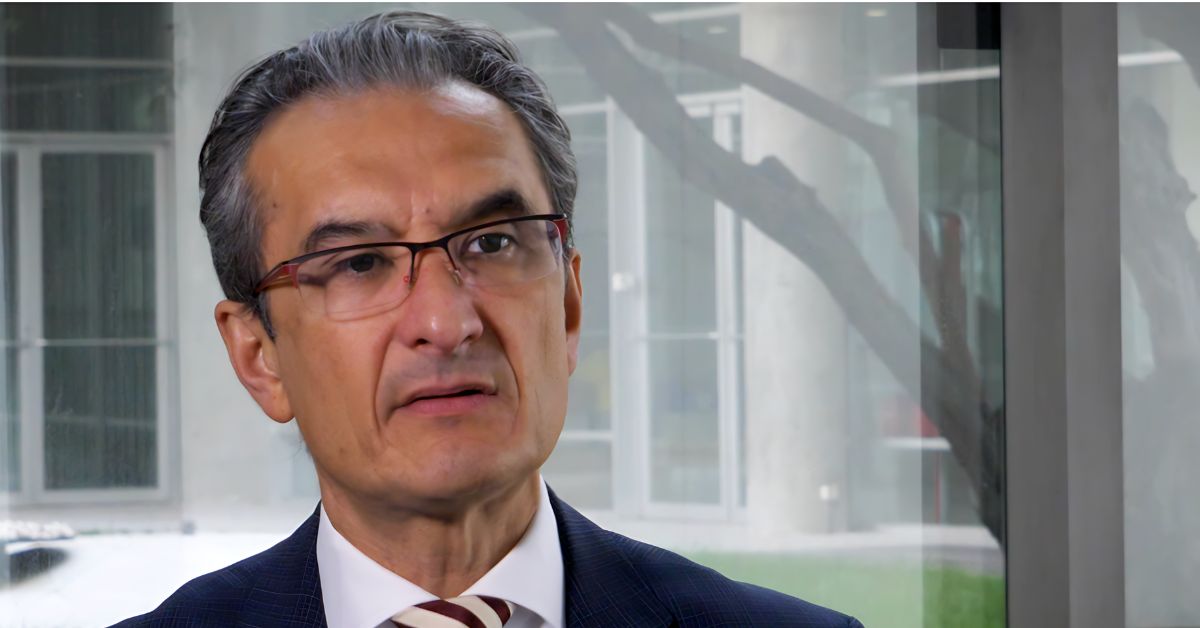Davos – There is a critical need for alignment between the private and public sectors over the utilization of Artificial Intelligence (AI), said Dr. Arturo Bris, a distinguished Professor of Finance and an expert in AI at the International Institute for Management Development (IMD) in Switzerland.
In an exclusive interview with TRENDS during the Davos 2024 conference, Dr. Bris shared his insights on how technology, public policy, and economic growth intersect. Dr. Bris underscored the widespread recognition of technology’s benefits but emphasized that while companies aim to use AI for cost reduction and job optimization, governments are focused on enhancing prosperity and boosting employment. He raised the vital question of finding the right balance through regulation and systems to ensure AI’s positive contribution to national development.
He also addressed the uncertainties surrounding job creation. Furthermore, he identified key regions leading in AI development, noting the UAE’s strategic focus on AI as a cornerstone of economic competitiveness, alongside other leaders such as Singapore, Switzerland, the UK, the US, and China.
Excerpts:
Q: What are your thoughts on AI? And what is the real situation with AI and its potential?
A: I won’t dwell on the advantages of technology for too long, as I believe there’s a consensus on that. My main insight is the need for alignment between the public and private sectors in their objectives because companies see AI as a means to reduce costs and jobs, whereas governments aim to increase prosperity and employment for their citizens. The challenge lies in finding the appropriate regulations and systems to ensure AI benefits countries as a whole.
Q: As you mentioned, jobs are threatened, and their creation is uncertain. What should be done specifically?
A: The future of job creation or destruction by AI is unclear. Therefore, I believe our immediate focus should be on ensuring those displaced by AI can find employment in areas outside of technology. This requires significant innovation and the preservation of certain sectors unaffected by technology, sectors that can continue to rely on the human touch, to maintain jobs and prosperity.
The future of job creation or destruction by AI is unclear. Therefore, I believe our immediate focus should be on ensuring those displaced by AI can find employment in areas outside of technology.
Dr. Arturo Bris from International Institute for Management Development
Q: What’s concerning about European regulations? Shouldn’t they be properly regulated?
A: The benefit of European regulation is that it marks the first time a major economy has united to regulate AI. However, it seems that in the quest for consensus, a crucial goal of regulation was overlooked: maintaining Europe’s competitiveness. Instead, the focus seems to be on protecting the competitiveness of European companies, a distinct and narrower objective. This suggests that regulators may have placed corporate interests first. There was noticeable pressure from European businesses to ensure the regulations did not tackle job displacement.
Q: How should this issue be addressed?
A: Unfortunately, it’s too late; the regulation has been passed. However, I believe countries can implement it differently through their application processes. I’m hopeful the United States will adopt a different approach, at least in principle, where jobs are prioritized according to US regulatory standards.

Q: Shouldn’t AI be regulated globally with uniform standards and practices?
A: Ideally, yes, but that’s unrealistic. We must accept that global regulation is unattainable because there’s always a first-mover advantage in regulation. Uniformity is futile if even one country deviates.
Q: Which regions are at the forefront of AI development?
A: The United Arab Emirates stands out as a global hub for AI. Singapore, some European countries like Switzerland, as well as the United Kingdom, the United States, and China, are leading the charge in AI investment.
The UAE has strategically positioned artificial intelligence as a cornerstone of its economic competitiveness in the future. With the right policies and governmental support, the country consistently follows through on its initiatives.
Dr. Arturo Bris from International Institute for Management Development
Q: Could you elaborate on the UAE’s AI ecosystem?
A: The UAE has strategically positioned artificial intelligence as a cornerstone of its economic competitiveness in the future. With the right policies and governmental support, the country consistently follows through on its initiatives. The government’s commitment is a crucial driver of success.
Q: Is AI an opportunity or a threat? How can it be managed?
A: AI is fundamentally an opportunity. If harnessed correctly, it presents a significant chance for advancement, but we must also be mindful of the risks. The key to managing AI’s impact lies in having visionary politicians and leaders, or at the very least, visionary voters who make informed choices.








